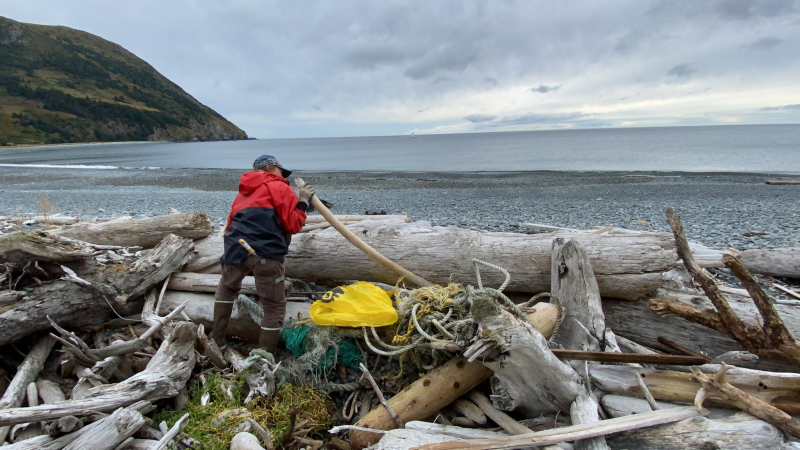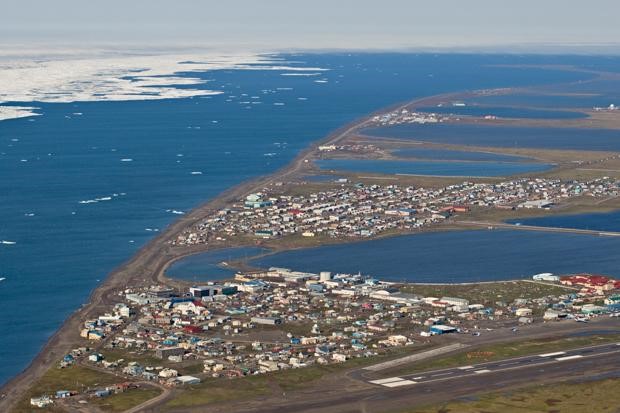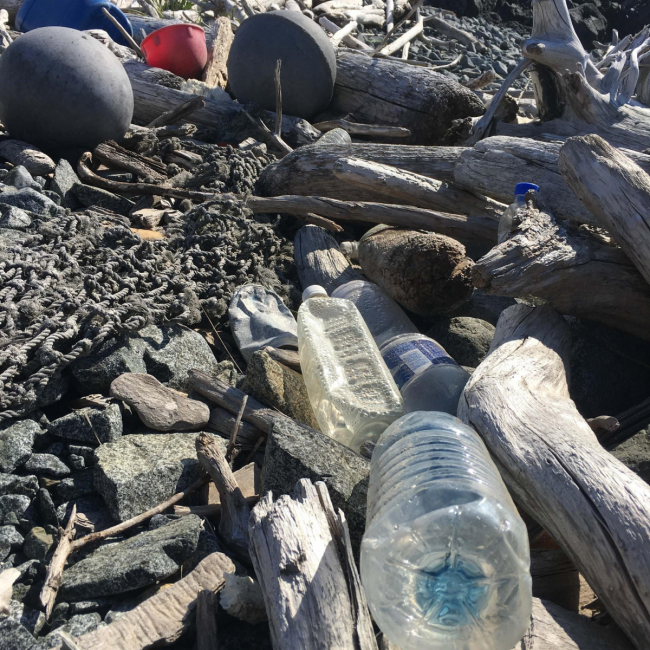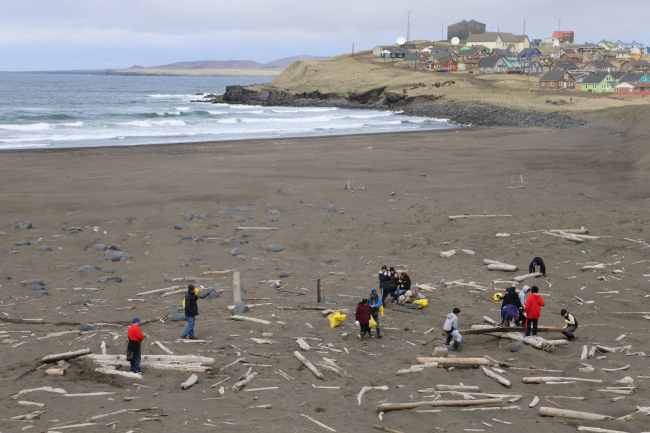Alaska occupies a unique space in the United States both for its location and its vast scale. With more than a third of the United States' shoreline, and a vast array of diverse wildlife and rich habitat, Alaska earns its nickname The Great Land or Alyeska in Aleut, one of the more than 20 native languages spoken in Alaska. The name Alaska comes from the Aleut alaxsxaq meaning “the mainland,” or more specifically “the object towards which the action of the sea is directed.” That name is fitting, since Alaska borders three seas that are part of two different oceans. Alaska’s position relative to ocean, wind, and current patterns combined with the significant and growing amounts of maritime transport and fishing activity in the surrounding waters, means that huge amounts of marine debris are directed onto Alaskan shores every year.
Addressing this debris and its impact is especially challenging in Alaska. With over 16% of the United States’ landmass, but less than 0.25% of its population, many areas where debris washes up are far from the nearest community. This means getting people out to remove debris is a complex endeavor that takes planning and creativity, often using boats, planes, and ATVs (all-terrain vehicles) to access the shoreline and retrieve the debris for eventual disposal. Fortunately, there is an active, dedicated, and innovative community of individuals and organizations working on the issue of marine debris in the state. These groups bring incredible field experience as well as in-depth and nuanced local knowledge of local conditions and debris patterns that allows them to understand and identify local debris issues and how to respond to them effectively.

Removal has long been a core component of marine debris work in Alaska. In the Kodiak Archipelago, the Island Trails Network is working with volunteers, professional staff, and the fishing industry to locate and remove shoreline debris from small and large vessels, as well as an inventive debris bounty program that pays fishers to remove debris during downtime while at remote fishing sites across the Kodiak archipelago. In the Pribilof Islands, the Aleut Community of St. Paul Island is leading efforts to remove debris from St. Paul, St. George, and Otter Islands, paired with the use of small UASs (unmanned aircraft systems) for debris quantification and prioritization. On the Alaska Peninsula, the Ocean Plastics Recovery Project is conducting cleanups to remove debris and researching alternate methods for disposal and reuse (return to our blog more on this project later this week).
While removal is an important component, preventing marine debris is a critical long-term solution. This is especially true in remote places, where removal complexity and costs are so much higher. Groups in Alaska are working to reduce marine debris of local concern through projects that aim to prevent it. The Aleut Community of St. Paul Island is partnering with the local community and Bering Sea fishing industry to explore alternatives to packing bands, which are especially damaging to marine mammals and wildlife when lost. The North Slope Borough is leading the prevention of single-use plastic debris through marine debris lessons, experiential cleanups, and data collection in schools across the eight communities of the Borough.

Alaska is also the state that makes the United States an Arctic nation. The Arctic is an area of emerging marine debris research and concern, with data showing debris from fishing nets and microplastics showing up in more and more isolated and remote areas. The NOAA Marine Debris Program is engaging with the Arctic Council on multiple efforts, including a Regional Action Plan on Marine Litter in the Arctic, and Monitoring Guidelines to aid in building a better understanding of the current and future picture of debris status and trends.
From the Arctic to Southeast Alaska, whether through removal, prevention, or research, it takes a range of organizations, skills, and approaches to tackle debris in Alaska. We are proud to support the debris community in Alaska and are looking forward to sharing more about the great work that is happening in the state later this week!



Gulf of Alaska Keeper has done an incredible job cleaning Alaska's shore for over 15 years. Hundreds of tons of debris, thousands of volunteer hours, and massive amounts of recycling efforts. It's awesome to see their efforts being recognized.